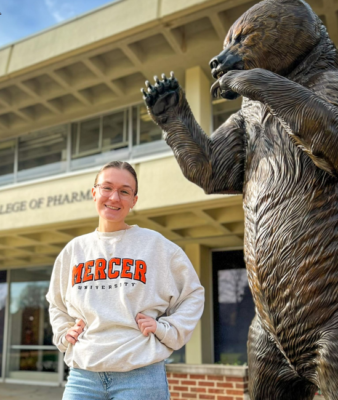When your lawyer can’t help you, more statin goodness, when smartphones go bad, and more
09 Dec 2023
Posted by Andrew Kantor
We gave bad advice
Yesterday we wrote about how the DEA is warning Georgia indy pharmacies that are dispensing low-THC oil that, having nothing better to do, the agency is threatening their licenses.
We figured “Talk to your attorney” was always good advice. Oops! It turns out that the Georgia Supreme Court has ruled that “lawyers can be sanctioned for advising manufacturers and sellers of marijuana oil.”
Yep, lawyers are not allowed to talk to you about dispensing low-THC oil.
With cannabis still illegal at the federal level, the court held that legal work related to the state’s burgeoning low-THC oil industry amounts to “counseling and assisting clients in the commission of criminal acts.”
If you’re a serial killer, arsonist, or embezzler, sure — go ahead and lawyer up. But if you’re thinking of selling dispensing low-THC oil, you’re on your own.
“A lawyer can defend you in court if the DEA busts you,” says GPhA’s Melissa Reybold, “but your attorney can’t draft a contract, read a contract, or advise selling it.”
GPhA on the air
Georgia Public Radio — WABE — covered pharmacy deserts in the state, and who d’ya think they had as expert guests? That would be GPhA interim CEO Mahlon Davidson and AIP VP Jonathan Marquess, of course.
Listen to them talk about how GPhA “is responding to the current state of the pharmacy industry, including a rise in pharmacy deserts, worker strikes, and the closures of several big-box pharmacies like CVS, Walgreens, and Rite Aid.

Statins vs. kidney disease
Older folks with chronic kidney disease (but not cardiovascular disease) might want to consider taking statins. A join Israeli-US study found that the cholesterol drugs reduce their risk of dying — from anything.
Zinc vs thrush
Vaginal yeast infections are often caused by a specific yeast called Candida albicans. And British researchers found an interesting bit of information about it.
Candida albicans needs zinc to survive, and when it doesn’t get enough it tries to find more by producing a molecule called Pra1. And it’s Pra1 that triggers the inflammatory response that leads to thrush.
In other words, give the yeast what it wants and no one gets hurt. (But, the researchers say, “[W]e’re not in the position to make treatment recommendations at this stage. We need larger scale trials to confirm the effect.”)
Mercer shout-out
A big high-five from the entire Buzz staff to Alyssa DeAngelo, a P3 student at Mercer’s CoP who was selected for an Advanced Pharmacy Practice Experience rotation at Xcenda (AmerisourceBergen’s pharmaceutical consultancy) — one of just 25 students across the country.
She’s looking forward to it, naturally. “Typically, we think of clinical rotations and in a hospital,” she said, “but this one is outside the box.”

Congrats to Mercer P3 Alyssa DeAngelo (left)
Obamacare update
So far about 7.3 million Americans have signed up for a marketplace plan through the Affordable Care Act, according to the latest CMS data. That includes 1.6 million people who are new to Obamacare plans. Open enrollment runs through January 15, 2024.
Smartphones: the four-hour limit
Once a teen uses a smartphone more than four hours a day, things get dicey — that’s according to a new study out of South Korea.
The research found that smartphone usage for more than 4 hours a day was associated with higher rates of stress, suicidal thoughts, and substance use compared to usage of below 4 hours per day.
The Long Read: CVS Cost-Plus edition
If you’re curious about how CVS’s new “cost-plus” model might affect, well, anyone, Adam Fein at Drug Channels goes in depth into why it may not be a big deal after all.
CVS Pharmacy’s cost-plus model has some notable shortcomings for plan sponsors and is far less “disruptive” than the company would like us to believe.


